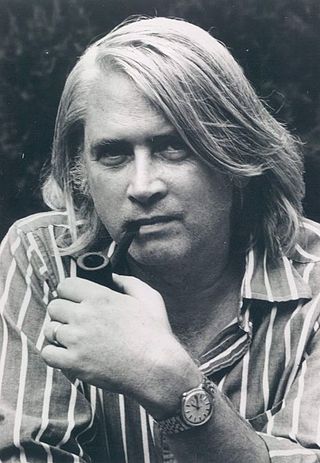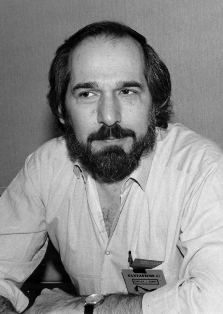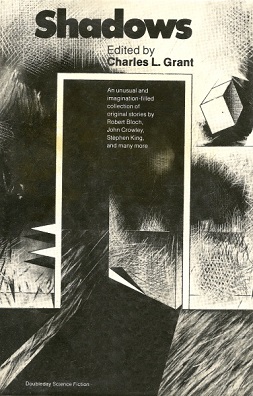
Gardner Raymond Dozois was an American science fiction author and editor. He was the founding editor of The Year's Best Science Fiction anthologies (1984–2018) and was editor of Asimov's Science Fiction (1986–2004), garnering multiple Hugo and Locus Awards for those works almost every year. He also won the Nebula Award for Best Short Story twice. He was inducted to the Science Fiction Hall of Fame on June 25, 2011.

Asimov's Science Fiction is an American science fiction magazine edited by Sheila Williams and published by Dell Magazines, which is owned by Penny Press. It was launched as a quarterly by Davis Publications in 1977, after obtaining Isaac Asimov's consent for the use of his name. It was originally titled Isaac Asimov's Science Fiction Magazine, and was quickly successful, reaching a circulation of over 100,000 within a year, and switching to monthly publication within a couple of years. George H. Scithers, the first editor, published many new writers who went on to be successful in the genre. Scithers favored traditional stories without sex or obscenity; along with frequent humorous stories, this gave Asimov's a reputation for printing juvenile fiction, despite its success. Asimov was not part of the editorial team, but wrote editorials for the magazine.

John Champlin Gardner Jr. was an American novelist, essayist, literary critic, and university professor. He is best known for his 1971 novel Grendel, a retelling of the Beowulf myth from the monster's point of view.
Barry Nathaniel Malzberg was an American writer and editor, most often of science fiction and fantasy.
Stanley Albert Schmidt is an American science fiction author and editor. Between 1978 and 2012 he served as editor of Analog Science Fiction and Fact.
Jack Dann is an American writer best known for his science fiction, as well as an editor and a writing teacher, who has lived in Australia since 1994. He has published over seventy books, the majority being as editor or co-editor of story anthologies in the science fiction, fantasy and horror genres. He has published nine novels, numerous shorter works of fiction, essays, and poetry, and his books have been translated into thirteen languages. His work, which includes fiction in the science fiction, fantasy, horror, magical realism, and historical and alternative history genres, has been compared to Jorge Luis Borges, Roald Dahl, Lewis Carroll, J. G. Ballard, and Philip K. Dick.

Charles Lewis Grant was an American novelist and short story writer specializing in what he called "dark fantasy" and "quiet horror". He also wrote under the pseudonyms of Geoffrey Marsh, Lionel Fenn, Simon Lake, Felicia Andrews, Deborah Lewis, Timothy Boggs, Mark Rivers, and Steven Charles.

Shadows was a series of horror anthologies edited by Charles L. Grant, published by Doubleday from 1978 to 1991. Grant, a proponent of "quiet horror", initiated the series in order to offer readers a showcase of this kind of fiction. The short stories appearing in the Shadows largely dispensed with traditional Gothic settings, and had very little physical violence. Instead, they featured slow accumulations of dread through subtle omens, mostly taking place in everyday settings. While Grant himself was very adept at this kind of fiction, he contributed no stories to the anthologies, writing only the introductions and author profiles. The first volume in the series won the World Fantasy Award for Best Anthology.
Robert Thurston was a science fiction author well known for his works in popular shared world settings.

Phyllis Eisenstein was an American author of science fiction and fantasy short stories as well as novels. Her work was nominated for both the Hugo Award and Nebula Award.

Universe was a series of seventeen annual science fiction anthologies edited by Terry Carr, later revived as a series of three biennial anthologies edited by Robert Silverberg and Karen Haber. It was initially published in paperback by Ace Books (1971–1972), with subsequent volumes published in hardcover by Random House (1973–1975), Doubleday, and Bantam Books (1992), and paperback by Popular Library, Zebra Books, Tor, and Bantam Spectra, successively. The last two volumes of the original series were issued in hardcover only, and the last volume of the revival in paperback only. British hardcover editions were published by Dennis Dobson (1971–1979) and Robert Hale (1982–1983).

New Dimensions 1 is an anthology of original science fiction stories edited by American writer Robert Silverberg, published in hardcover by Doubleday Books in 1971 and reprinted in paperback by Avon Books in 1973. While Silverberg had previously compiled several reprint anthologies, New Dimensions 1 was the first anthology of original work he edited. It placed second in the annual Locus Poll for best original anthology.

Timothy Robert Sullivan was an American science fiction novelist, screenwriter, actor, film director and short story writer.
List of the published work of Barry N. Malzberg, American writer.
List of the published work of Bill Pronzini, American writer.

New Dimensions II: Eleven Original Science Fiction Stories is an anthology of original science fiction short stories edited by American writer Robert Silverberg, the second in a series of twelve. It was first published in hardcover by Doubleday in December 1972, with a paperback edition under the variant title New Dimensions 2 following from Avon Books in December 1974.

New Dimensions 3 is an anthology of original science fiction short stories edited by Robert Silverberg, the third in a series of twelve. It was first published in hardcover by Nelson Doubleday/SFBC in October 1973, with a paperback edition under the variant title New Dimensions III following from Signet/New American Library in February 1974.

New Dimensions IV is an anthology of original science fiction short stories edited by Robert Silverberg, the fourth in a series of twelve. It was first published in paperback by Signet/New American Library in October 1974.











